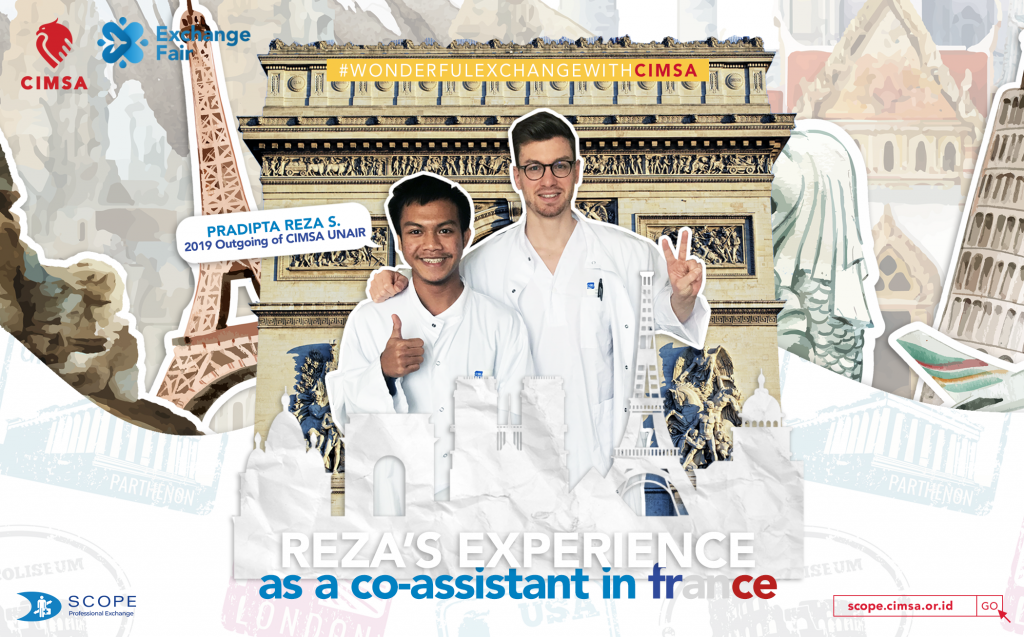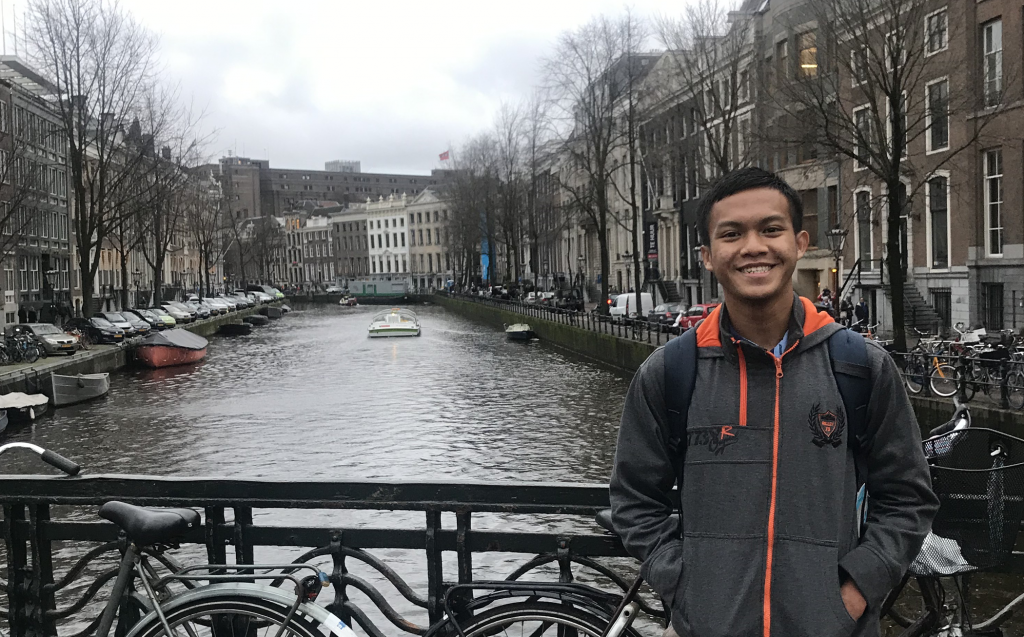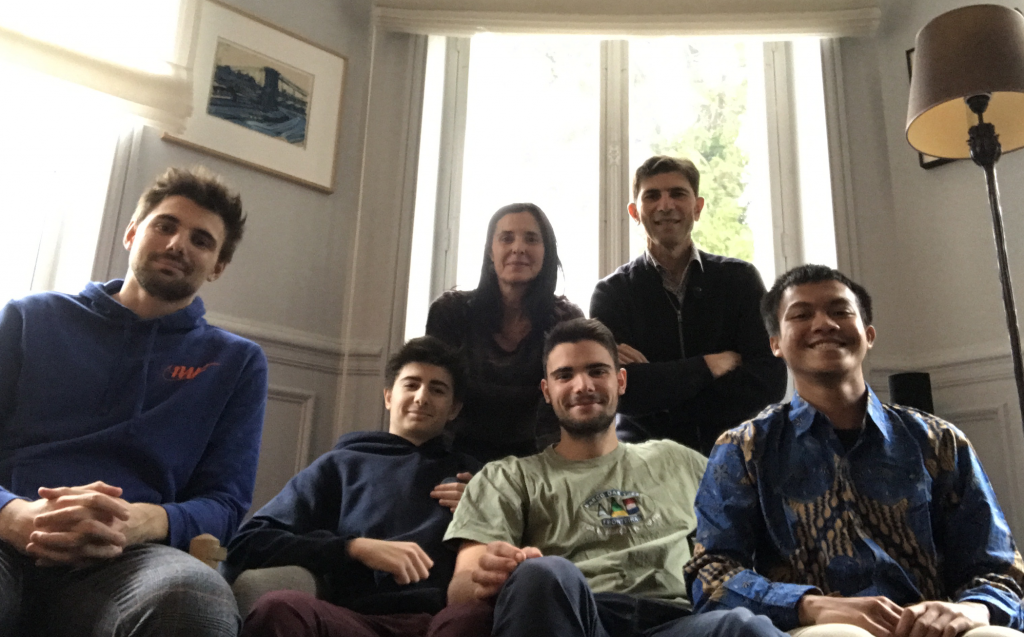
1. Can you tell us about your life in a day as a co-assistant in France?
In France, co-assistant works more than in Indonesia, such as filling in the medical record, performing invasive medical procedures (e.g., ascites punctures). Seniority in France is more relaxed than in Indonesia. Students call young lecturers by their first names (for example, Dr. David Guetta is called David) so that the lecturers, residents, and students’ relationship are closer. Interprofessional healthcare in France is better than in Indonesia because, during the morning before the patient visits, an interprofessional discussion is held between doctors, nurses, nutritionists, etc. Co-assistant activities in the Hepato-Gastro-Enterology department at CHU Nancy Brabois starts by discussing at 08.00 – 09.00 a.m., which will then be followed with patient visitation.

2. How is it different from being a co-assistant in Indonesia?
In Indonesia, the ability to do some medical procedures is limited. Co-assistant does not fill medical records or perform invasive therapy. Besides that, seniority is an important matter. When chatting and talking, we always use formal language. Interprofessional healthcare in Indonesia is still limited to communicating between healthcare workers in the medical record.

3. Is there anything that you would like to highlight?
Even though France is a developed country, not all French people (including medical students) speak English, even in Paris. You can try using a translator platform, but it would be better if you knew basic French conversations. In France, wearing hijab in hospitals and other public buildings – such as campuses, offices, etc – is prohibited. This might be unusual, especially for students from Indonesia. However, you need to remember that when in Rome, do as the Romans do. On the other hand, there’s one thing that might be familiar for us Indonesian students. Almost everyone smokes. This includes medical students, patients, and the elderly.
As someone who lives in Indonesia, we need rice to feel ‘energized’. But in France, having rice is not for every day. At that time, I got a lunch coupon at the hospital and they changed the menu every day. We got to eat rice probably once or twice a week. If you prefer to buy your own food, the cost of a single meal is around three euros. You can also cook for yourself! Remember, as long as you’re in France, talking about work or study during a meal is forbidden. Also, since most Indonesian are Muslims, I would like to highlight that chicken or beef in Europe is not always Halal. It is probably due to the way of slaughtering the animal which is not in accordance with the Islamic Law. The safest way is to eat fish or other seafood.

4. Are there any other tips for students who are going to France?
Of course, you need to prepare your best before departure. Re-check your airline tickets, visa, vaccinations, language certificates, insurance, and clothes according to the season.
For the visa, apply it at the right time. I applied about 4 weeks before departure. If you apply for the visa long before your departure, the embassy might reject it. The same goes if you give a short interval between your visa application and your departure. The worst-case scenario is that the embassy rejects your application, and you won’t have time to re-apply it. Pay attention to the EC for each city, since the vaccinations that are requested for each city can be different. Consider the time for vaccination because the HepB vaccine dose is 0-1-6 (in months). Select the country and/or city that your senior has visited so you can ask several questions. Since France is prone to pickpockets, it is recommended to stroll around with a friend. If you’re going to France, you can watch Emily in Paris to at least get a grasp of French culture, although not everything in the series is true.



